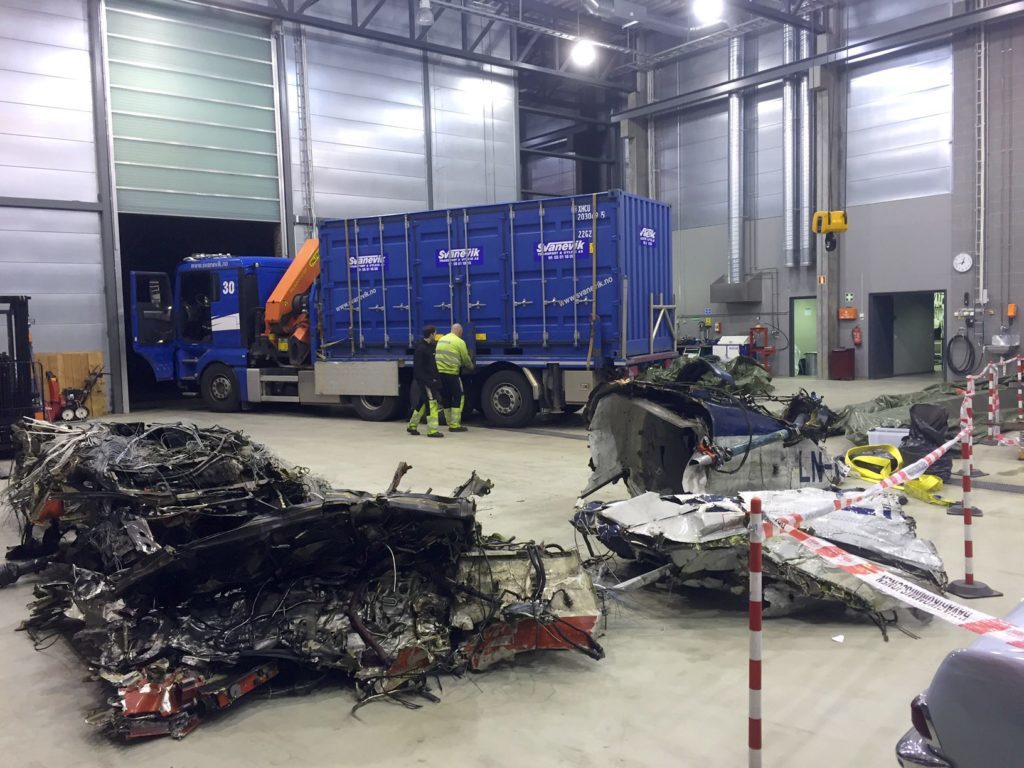
The Scottish Government has rejected calls for a public inquiry into North Sea helicopter safety.
A total of 33 offshore workers have died in helicopter incidents in the last decade, all involving the Super Puma model, which is no longer in operation in the UK sector.
The Unite and RMT unions, joined by north-east Labour MSP Lewis Macdonald, have been seeking Holyrood support for a UK inquiry into whether “commercial pressures” were jeopardising safety.
The group argued there has been a “serious decline” in workforce confidence in offshore transport.
Aviation safety is under control of the UK Government so it is Westminster that the group ultimately has to convince.
Energy Minister Paul Wheelhouse and transport secretary Michael Matheson have met with the Oil and Gas Authority (OGA) and Civil Aviation Authority (CAA) respectively to discuss the issue.
In a letter to Lewis Macdonald, Mr Wheelhouse said there is ongoing work being carried out by the industry so a further review or inquiry “would not be helpful”.
Mr Macdonald urged the government to reconsider.
He said: “It is deeply disappointing that Ministers have decided not to back the calls being made by the workforce and their unions for a full public inquiry into helicopter safety.
“The Offshore Co-ordinating Group has previously highlighted that the helicopter journey to and from work is the biggest single safety concern for offshore workers.
“When so many workers are coming together to highlight safety concerns, it is vital that both Scottish and UK Governments take on board what they have to say.
“That is why SNP Ministers at Holyrood must reconsider this decision and back calls from workers for a UK-wide public inquiry into helicopter safety.”
In his letter, Mr Wheelhouse highlighted the work of the CAA, which will be carrying out a post-implementation review of its CAP1145 regulations.
This is a series of rules put in place by the CAA following a helicopter crash off the coast of Shetland in 2013, which killed four people, including new size classifications for “extra broad” workers so they have windows large enough to escape from.
In 2016, this was followed by another crash on the Norwegian island of Turoy which killed 13 people.
The RMT Union said it is not confident the CAP1145 review will take the issue seriously.
Mick Cash, general secretary of RMT, said: “The Scottish Government’s engagement on offshore helicopter safety is welcome but will be of little consolation to North Sea oil and gas workers whose confidence in the safety of the offshore helicopter fleet has seriously declined.
“Ultimately, the Scottish Government has sided with the interests of the oil and gas industry and against offshore workers in opposing the call for a public inquiry into offshore helicopter safety. Offshore unions will take note of that as the campaign continues.”
The unite union also slammed the decision.
Regional officer Tommy Campbell said: “Unite notes the Scottish Government says the voice of the workforce must be at the heart of any discussion but on the issue of a public inquiry on helicopter safety they have chosen to ignore the voices of the workforce who clearly want one.
“Shame on the Scottish Government for not supporting the wishes of the offshore workforce who have lost workmates and friends because of helicopter incidents.”
In his letter, Mr Wheelhouse said the Scottish Government will continue to be engaged on the matter of helicopter safety.
He said: “There are clearly a number of initiatives already ongoing by industry involving a number of parties including the CAA, Step Change in Safety and the Offshore Unions.
“Subject to the outcome of these initiatives it would not be helpful at this time to hold a further review or inquiry.”
Recommended for you

